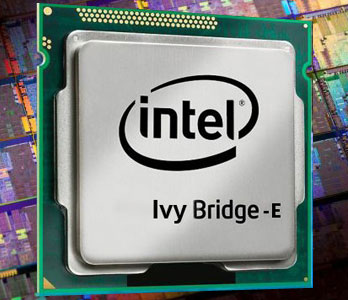
Ivy Bridge is a powerful processor on its own and doesn’t need to be overclocked to higher speeds. Overclocking is a technique which allows a processor to perform faster than what it was set to. Despite its powerful performance, Ivy Bridge was unable to escape the hands of eager enthusiasts who want to find out how much more they could squeeze out of it. In the process, they discovered it runs very hot – boiling water hot, even.
Intel’s Sandy Bridge also heats up when overclocked. But after Ivy Bridge was pitted against it, it was discovered to run hotter than its predecessor.
Tech Report was responsible for the testing wherein they pushed Sandy Bridge Core i7-2600K and Ivy Bridge Core i7-3770K to 4.9GHz using air cooling.
When it comes to power use, Ivy Bridge takes up a little more at 236w compared to the 231w of Sandy Bridge. Voltages were almost the same for both but again, Ivy was just a bit higher – 1.368V versus 1.381V. But when it comes to temperature, that’s where the difference could be felt. At 4.9GHz, Sandy Bridge was hot at 80 degrees Celsius but Ivy was even hotter at 100 degrees Celsius. That’s a staggering 20 degrees Celsius difference between the two. If you’re familiar with boiling points, 100 degrees Centigrade is the same temperature that water has to reach in order for it to boil – ouch! While this is still within operational limits of computer hardware, investing in better cooling is most ideal if you want to steer clear from possible heat problems caused by overclocking.
Intel explains the extra temperature comes from the different package thermal technology used in Ivy Bridge. Sandy Bridge chips have a fluxless solder which links the CPU and heat spreader. In Ivy Bridge, this was changed to thermal paste which is less efficient at dissipating heat. Be reminded that overclocking to 4.9GHz is the only known cause of Ivy Bridge reaching 100°C. Under standard speed, it is less likely to reach these temperatures. But we now know that Ivy Bridge is bad at dissipating heat in comparison to Sandy. It is up to manufacturers to design their computers in a way that prevents them from overheating. So far, only Lenovo has officially announced Ivy Bridge-powered laptops.
via TechReport



